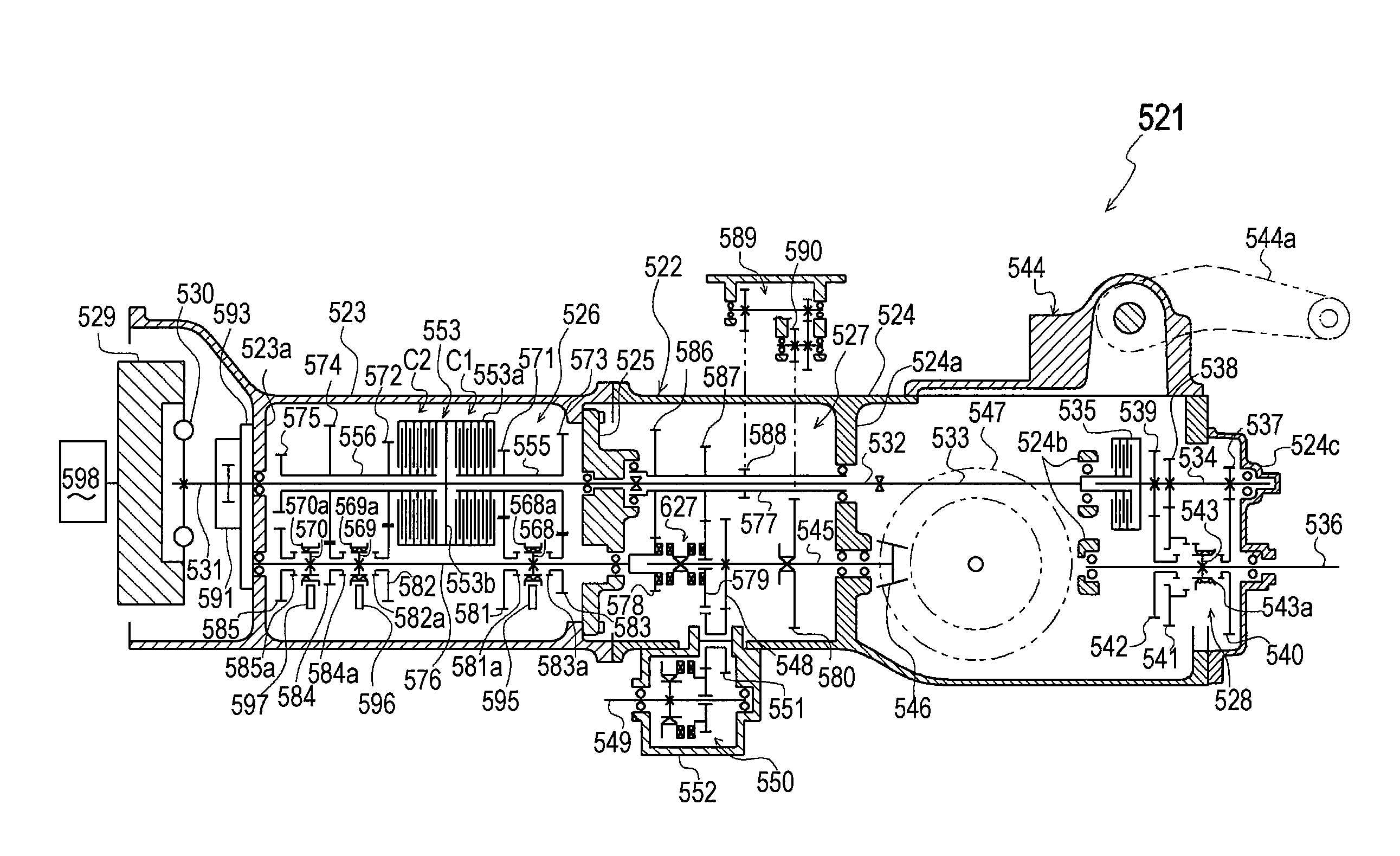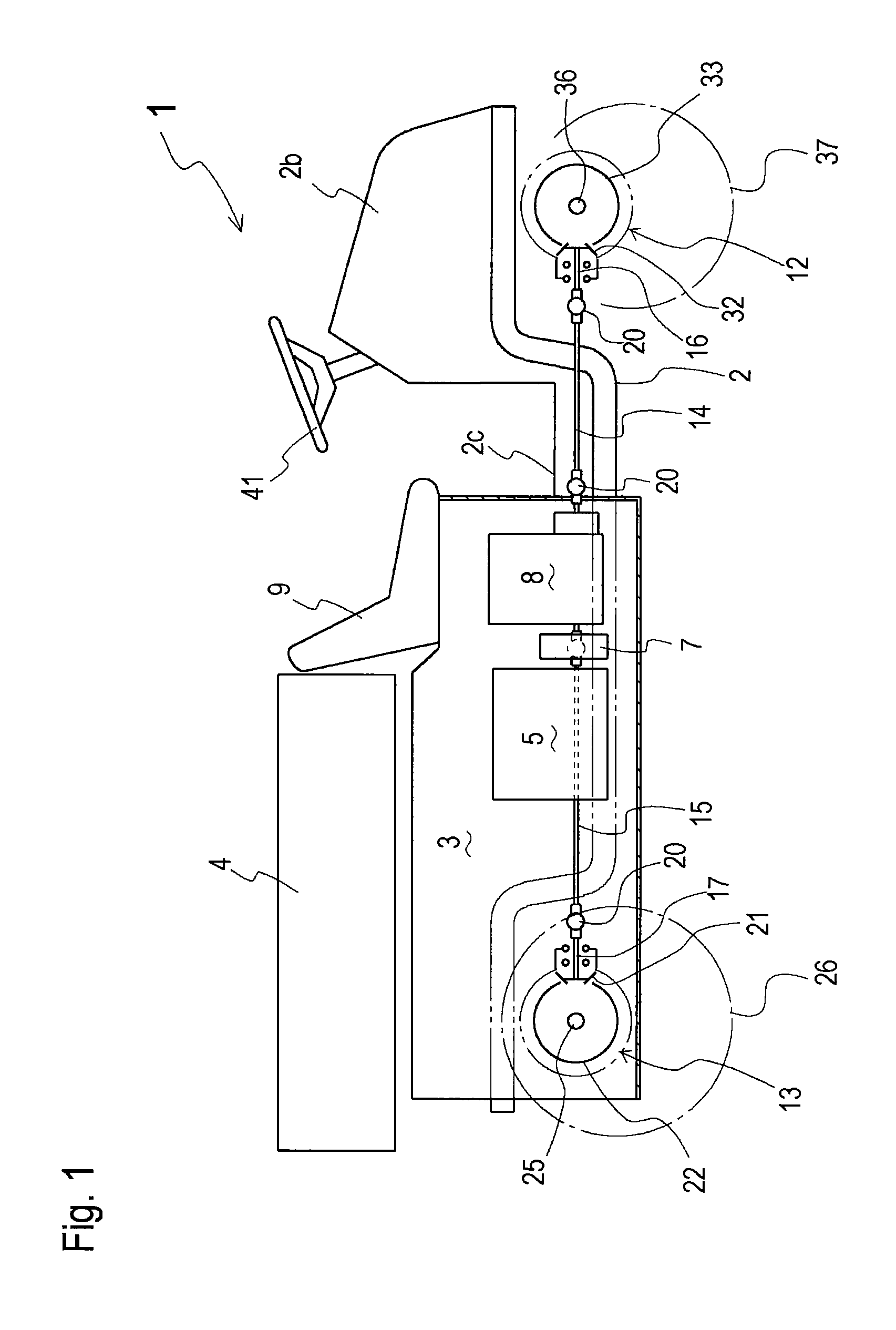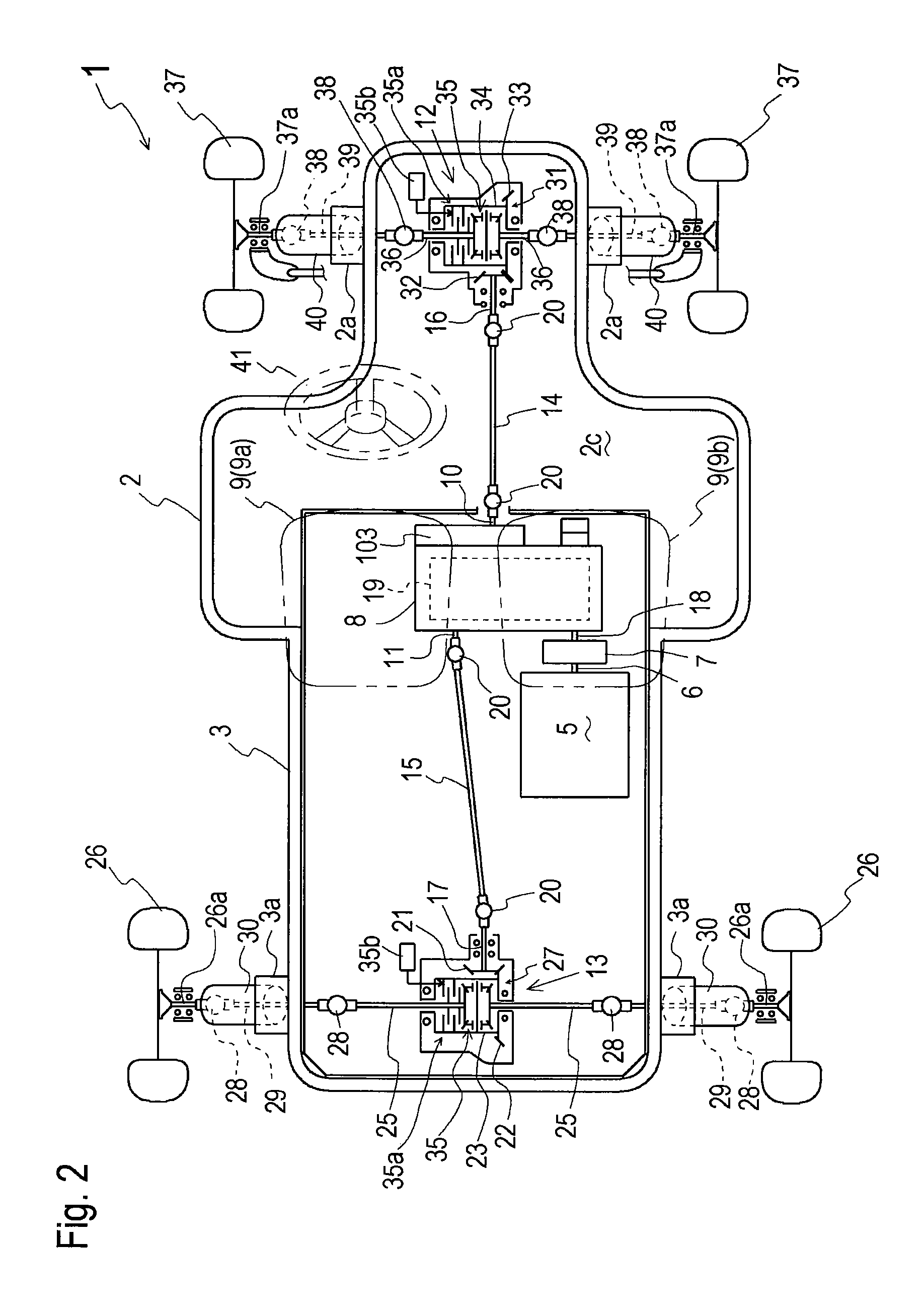Vehicle transmission system
a transmission system and vehicle technology, applied in the direction of gearing details, gearing, instruments, etc., can solve the problems of inability to brake the engine, short durability of the belt, belt slipping, etc., to prevent sudden acceleration of the vehicle, increase the clutch pressure, and increase the clutch pressure. effect of the rate of the clutch
- Summary
- Abstract
- Description
- Claims
- Application Information
AI Technical Summary
Benefits of technology
Problems solved by technology
Method used
Image
Examples
first embodiment
[0091]Referring to FIGS. 1 to 9, a vehicle such as a utility vehicle will be described. Hereinafter, the position and direction of each element is stated on the basis of the traveling direction of the vehicle.
[0092]A general structure of a vehicle 1 will be described with reference to FIGS. 1 and 2. Vehicle 1 is a utility vehicle serving as a typical vehicle according to the invention. A front frame 2 and a rear frame 3 joined to each other constitute an entire body frame of vehicle 1. Rear frame 3 consists of a horizontal bottom plate, which is substantially rectangular when viewed in plan, and vertical side plates erected on front, rear, left and right end edges of the bottom plate. A cargo 4 is disposed above rear frame 3. Preferably, cargo 4 is vertically rotatable. Rear frame 3 serves as a base for supporting cargo 4. A pair of left and right seats 9 are mounted on a downwardly stepped front portion of rear frame 3. One seat 9 (in this embodiment, left seat 9) is an operator's...
third embodiment
[0171]Description will now be given of a vehicle transmission system 521 including a multi-speed transmission 526 is configured so as to enable a prompt shift between a certain forward-traveling speed stage and a backward-traveling speed stage by use of the alternate shift between a first clutch for odd-numbered speed stages and a second clutch for even-numbered speed stage with reference to FIGS. 7, 8 and 11 to 17. First, an entire construction of vehicle transmission system 521 including multi-speed transmission 526 will be described with reference to FIG. 11. Vehicle transmission system 521 is provided for a four-wheel drive agricultural tractor. An engine 598 is mounted on a front portion of the tractor, and a transmission casing 522 of vehicle transmission system 521 is disposed in the tractor behind engine 598. Transmission casing 522 incorporates a multi-speed transmission 526 serving as a main transmission (hereinafter, referred to as “main transmission 526”) and a sub tran...
fourth embodiment
[0346]A multi-speed transmission 199 will be described with reference to FIGS. 37 to 43. Transmission 199 includes multi-speed gear trains, consisting of plural speed (first to third speed) normal (forward traveling) gear trains and a reverse (backward traveling) gear train, a sub gear train, a main clutch 301 for the multi-speed gear trains and a sub clutch 302 for the sub gear train. Axles 25 and 36 are normally driven by one gear train selected among the multi-speed gear trains and by engaging main clutch 301. When a gearshift operation is performed, main clutch 301 is disengaged for one-to-another exchange of the gear train selected to be activated among the multi-speed gear trains, and simultaneously sub clutch 302 is engaged so as to transmit power of engine 5 to axles 25 and 36 through the sub gear train activated by engaging sub clutch 302 during the exchange of multi-speed gear trains.
[0347]In vehicle 1 as shown in FIGS. 1 and 2, engine 5 is disposed so as to orient its cr...
PUM
 Login to View More
Login to View More Abstract
Description
Claims
Application Information
 Login to View More
Login to View More - R&D
- Intellectual Property
- Life Sciences
- Materials
- Tech Scout
- Unparalleled Data Quality
- Higher Quality Content
- 60% Fewer Hallucinations
Browse by: Latest US Patents, China's latest patents, Technical Efficacy Thesaurus, Application Domain, Technology Topic, Popular Technical Reports.
© 2025 PatSnap. All rights reserved.Legal|Privacy policy|Modern Slavery Act Transparency Statement|Sitemap|About US| Contact US: help@patsnap.com



